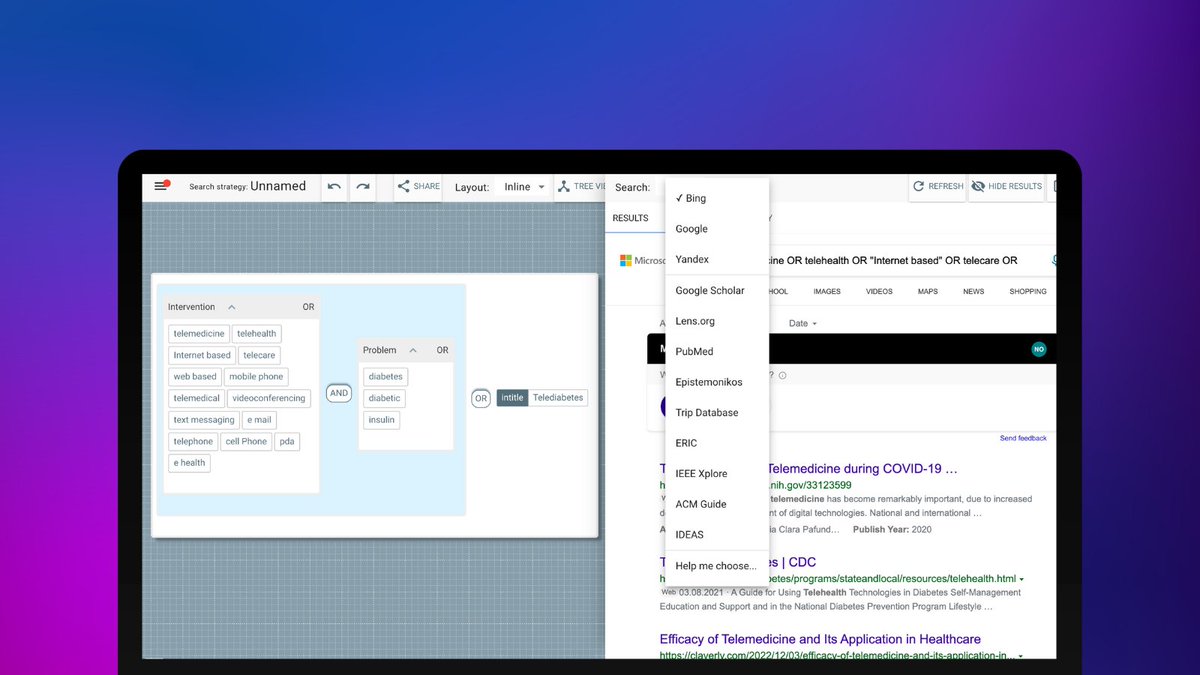
Academic research gets easier day by day. All thanks to AI tools like @scispace_ co-pilot 👩✈️
Co-pilot can instantly answer your questions and simply explain scientific concepts as you read
Here’s how to get the most out of it:
(scroll for a giveaway!)
#OpenScience #phdplace
Co-pilot can instantly answer your questions and simply explain scientific concepts as you read
Here’s how to get the most out of it:
(scroll for a giveaway!)
#OpenScience #phdplace
1⃣ Go to the main page of SciSpace (typeset.io) and type your keywords
2⃣ Find all the articles that match your keywords and see their comprehensive summaries
If you're doing a lit review, it's a perfect way to explore a pre-selected paper without reading its full text
If you're doing a lit review, it's a perfect way to explore a pre-selected paper without reading its full text
3⃣ Select an article to discover
You have its full text on the left and a co-pilot on the right
Co-pilot is SciSpace's AI-driven bot that helps you understand the paper (see thread below)
You have its full text on the left and a co-pilot on the right
Co-pilot is SciSpace's AI-driven bot that helps you understand the paper (see thread below)
https://twitter.com/scispace_/status/1595463702362607616
Bonus: if the paper is not in open access, you can manually upload it to SciSpace and do the same
See the thread of Mushtaq
See the thread of Mushtaq
https://twitter.com/MushtaqBilalPhD/status/1598246223277744128?s=20&t=HfOekQ-zkGJ3ykJ48N-3OAfor more info
4⃣ Highlight scientific terms or whole sentences to get their down-to-earth explanation
Co-pilot doesn't just help you understand them, but also cites the seminal papers in its answer!
Co-pilot doesn't just help you understand them, but also cites the seminal papers in its answer!
5⃣ Ask the co-pilot to explain math equations, graphs, diagrams, or tables
Click at "Clip math and tables" in the co-pilot window 👉 select the equation, graph, or table to explain 👉 wait up to 10 sec 👉 enjoy a structured, easy-to-understand summary or explanation
Click at "Clip math and tables" in the co-pilot window 👉 select the equation, graph, or table to explain 👉 wait up to 10 sec 👉 enjoy a structured, easy-to-understand summary or explanation
6⃣ Explore the rest of the paper by asking co-pilot pre-set questions
It can explain the paper's:
• Abstract in simple terms or even in one line
• Key takeaways
• Uniqueness, contributions, and practical implications
• Main approaches
• Data used
• Results
• Conclusions
It can explain the paper's:
• Abstract in simple terms or even in one line
• Key takeaways
• Uniqueness, contributions, and practical implications
• Main approaches
• Data used
• Results
• Conclusions
7⃣ Dive deeper by asking your own or follow-up questions
Example:
I asked how many papers a meta-analysis study reviewed
...and I got 1) number, 2) fields, 3) languages, and 4) timespan of the reviewed papers
It took <10 sec instead of 1h I'd spend reading the paper!
Example:
I asked how many papers a meta-analysis study reviewed
...and I got 1) number, 2) fields, 3) languages, and 4) timespan of the reviewed papers
It took <10 sec instead of 1h I'd spend reading the paper!
8⃣ Save the co-pilot chat for later, interact with the co-pilot in 10 languages, join SciSpace's discord, and, of course, follow the team on twitter:
@scispace_
@scispace_
9⃣ Finally, SciSpace allows you to explore the citation network
See the citing and cited by of the article and get suggestions of other relevant papers
See the citing and cited by of the article and get suggestions of other relevant papers
SciSpace makes scientific reading truly enjoyable, easy, and fast 💨
It answers any question you may have like an expert
It explains all the formulas, graphs, and tables like a caring teacher
And it's FREE, no sign-in required (only if you want to save your progress)
It answers any question you may have like an expert
It explains all the formulas, graphs, and tables like a caring teacher
And it's FREE, no sign-in required (only if you want to save your progress)
Disclaimer:
My Twitter is not commercial. It gives me the flexibility to only share high-quality tools that I genuinely enjoy
If I get asked to recommend someone's product, I first do a thorough background check of the company and a crash test of their tool 👇
My Twitter is not commercial. It gives me the flexibility to only share high-quality tools that I genuinely enjoy
If I get asked to recommend someone's product, I first do a thorough background check of the company and a crash test of their tool 👇
If a company wants to thank me, they can do it by:
1) giving something to my Twitter followers
2) donating any amount to a charity of their choice
1) giving something to my Twitter followers
2) donating any amount to a charity of their choice
@scispace_ wants to encourage you to try SciSpace and share your best conversations with the co-pilot in the comments 👇
Three authors of the best conversations will get a Christmas present from SciSpace: any book from the image shipped to them! (results on the Dec 20th)
Three authors of the best conversations will get a Christmas present from SciSpace: any book from the image shipped to them! (results on the Dec 20th)

• • •
Missing some Tweet in this thread? You can try to
force a refresh










